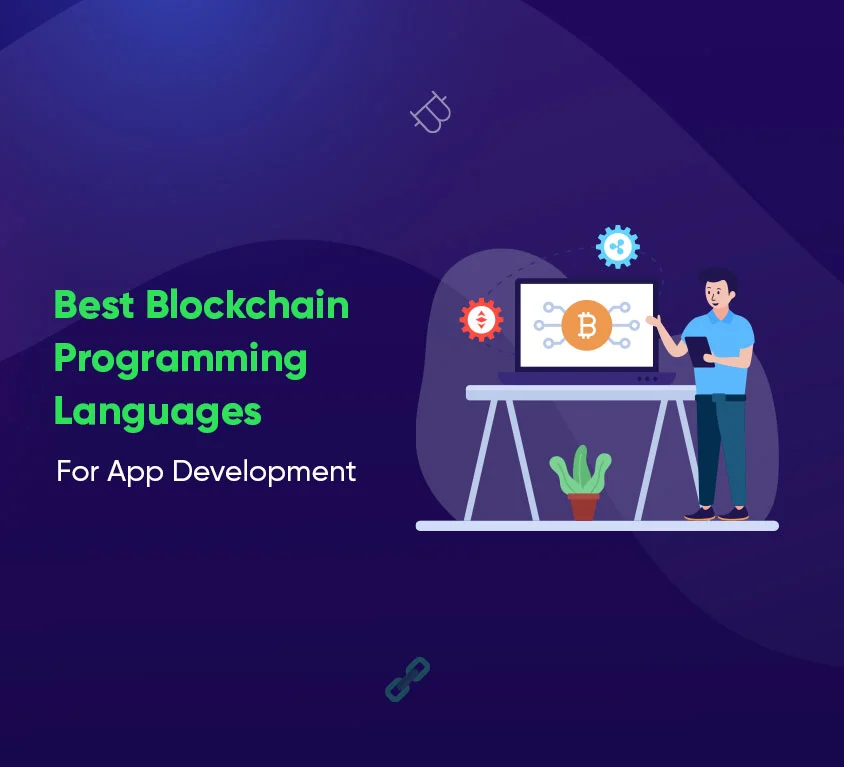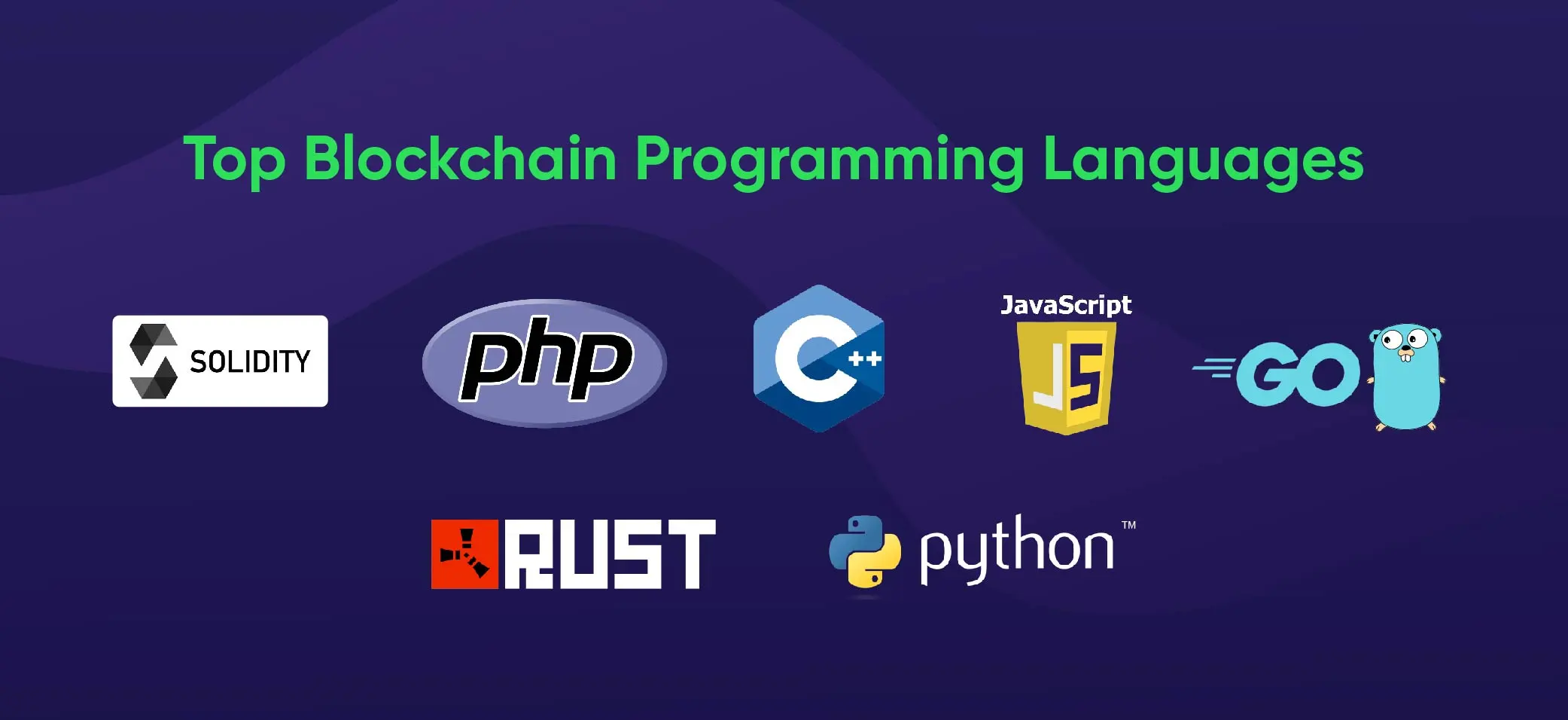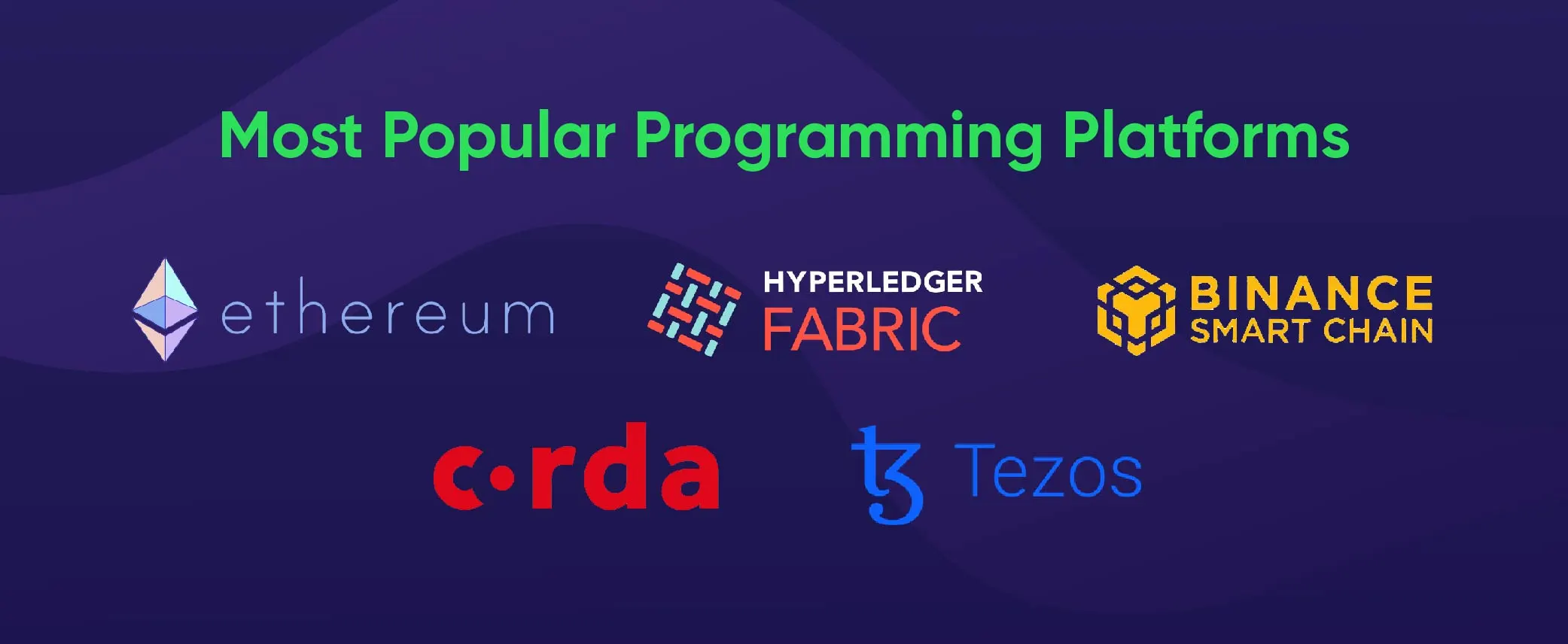
Introduction
Blockchain & Web3 Services Trusted By Leaders
- Develop innovative solutions using our state-of-the-art blockchain expertise.
- Achieve accelerated growth with robust & scalable Web3 consulting.
- Unlock 360-degree security with our top-rated blockchain development.
Best Programming Languages For Blockchain App Development
Blockchain is a disruptive technology in this rapidly changing landscape. It has revolutionized industries with its secure and decentralized architecture. However, businesses need to grasp the appropriate blockchain platforms and programming languages as they investigate the possibilities of blockchain application development and much more. This thorough blog post will cover the top programming languages for creating blockchain apps, as well as their benefits and drawbacks. It will also go over some of the leading blockchain development platforms and offer helpful advice for developers looking to get started with blockchain development.Top Programming Languages for Developing Blockchain Apps

1. Solidity Programming Language
Solidity is widely recognized as the language of choice for Ethereum-based smart contracts. It guarantees dependable and safe contract execution. It helps overcome the learning curve and opens doors to creating robust applications in Ethereum’s evolving ecosystem.Features of Solidity:
- Developer Friendly
- Access to JavaScript, Debuggers, and more tools
- Statistical Programming
- Hundred Percent Accuracy
2. PHP Programming Language
The language PHP (Hypertext Preprocessor) is highly recommended. PHP is recommended for Blockchain app development by all reputable mobile development companies. The most recent version of PHP, 7.4.0, was published on November 28. Rasmus Lerdorf created the PHP programming language in 1994.Features of PHP
- Pages that are interactive and let you perform sophisticated tasks
- Password-protected pages can be created with PHP.
3. C++ Programming Language
C++ excels in powering the core systems of blockchain platforms. It ensures optimal efficiency. However, its intricate syntax may pose challenges for developers unfamiliar with its technology. To overcome this, contributing to the high-performance infrastructure of blockchain networks is important.Features of C++
- Mid-level programming language
- Structured programming language
- Data Hiding
- Rich Library
- Powerful & Fast
4. JavaScript Programming Language
There have been questions raised concerning the security of JavaScript-written smart contracts, highlighting the necessity of extensive testing. But, JavaScript is a flexible language that can be used for blockchain development on both the front end and back end. Its flexibility allows developers to create dynamic and interactive user interfaces on the front end, while also enabling server-side functionality on the back end. Despite security considerations, the adaptability of JavaScript makes it a valuable tool in the diverse toolkit to learn to become a blockchain developer.Features of JavaScript
- Scripting Language
- Object-Based Scripting Language
- In-Built Function
- Validating User’s Input
- Light Weighted
Go (Golang) Programming Language
Despite its advantages, Golang might not have as many libraries as more well-known languages. Golang is well-known for being straightforward and effective, which makes it a good choice for creating high-performance, scalable blockchain applications. Its simplicity accelerates development cycles, fostering efficiency in creating robust solutions. While the library landscape may be evolving, Golang’s core strengths in performance and scalability continue to make it a compelling language for blockchain development.Features of Go
- Simplicity
- Powerful Library
- Web Application Building
- Testing Support
Rust Programming Language
Rust emphasizes performance and safety, and its strong features have helped it become popular in the blockchain development community. Compared to more well-established languages, the Rust community is smaller, which may have an impact on the resources and support that are available. Despite this, Rust’s growing influence underscores its potential to become a dominant force, and the committed community often compensates for its size by fostering a tight-knit and collaborative environment for those delving into Rust-based blockchain development. Explore our offerings of innovative blockchain apps developed with the Rust programming language. You can fully utilize Rust programming with our reliable and secure blockchain solutions.Rust Features
- High performance
- Concurrency support
- Zero-cost abstractions
- Pattern matching
Python Programming Language
Python’s ascendancy in blockchain development is attributed to its unparalleled readability and simplicity. Its user-friendly nature has contributed significantly to its widespread adoption within the blockchain community. However, one caveat is the Global Interpreter Lock (GIL), which could pose a constraint for highly parallel blockchain applications. Despite this limitation, Python’s ease of use and extensive libraries make it an accessible choice for various blockchain projects, especially those emphasizing straightforward development and rapid prototyping. As the blockchain landscape evolves, Python’s strengths in readability and simplicity continue to shape its role in the dynamic world of decentralized applications.Features of Python
- Object-Oriented
- Easy to Code
- High-level Language
- Large Standard Library
- Thoroughly Portable
- Dynamic Memory Allocation
Most Popular Programming Platforms

Ethereum
Ethereum remains a frontrunner in the blockchain space, known for its support of smart contracts and decentralized applications.Features
- Smart Contract Support: Enables the creation of self-executing contracts with predefined rules.
- Turing-Complete: Offers a comprehensive scripting language, facilitating complex computations.
- Decentralized Autonomous Organizations (DAOs): Allow the creation of autonomous organizations governed by code.
Hyperledger Fabric
Hyperledger Fabric is a permissioned blockchain platform designed for enterprise-level solutions, offering scalability and flexibility.Features
- Modular Architecture: Allows customization to meet specific business requirements.
- Private Transactions: Provides confidentiality by restricting access to authorized participants.
- Pluggable Consensus: Supports various consensus mechanisms for flexibility.
Binance Smart Chain
Binance Smart Chain (BSC) is a blockchain platform developed by Binance, known for its fast transaction speeds and low fees.Features
- Dual Chain Architecture: Operates in tandem with Binance Chain, offering compatibility with existing Binance Chain applications.
- Smart Contract Support: Facilitates the creation of DApps and smart contracts.
- Cross-Chain Compatibility: Allows assets to move seamlessly between BSC and Binance Chain.
Corda
Corda is an open-source blockchain platform specifically designed for businesses, focusing on privacy and interoperability.Features
- Corda Contracts: Facilitates the creation of smart contracts in Kotlin, ensuring a secure and reliable execution.
- Unspent Transaction Output (UTXO) Model: Enhances privacy by avoiding the need for a global history of transactions.
- Notary Services: Provides a consensus mechanism for validating transactions.
Tezos
Tezos is a self-amending blockchain platform that allows stakeholders to govern protocol upgrades. Features- On-Chain Governance: Enables stakeholders to vote on protocol upgrades and changes.
- Formal Verification: Enhances security by allowing developers to mathematically prove the correctness of smart contracts.
- Liquid Proof-of-Stake (LPoS): Implements a unique consensus algorithm for secure and efficient validation.
- Ethereum is known for its decentralized network
- Hyperledger Fabric is a permissioned platform with a modular architecture
- Binance Smart Chain is a cost-effective alternative for decentralized applications
- Corda is an open-source platform with a focus on smart contracts in Kotlin.
- Tezos is known for its self-amending blockchain and active stakeholder participation in protocol upgrades.